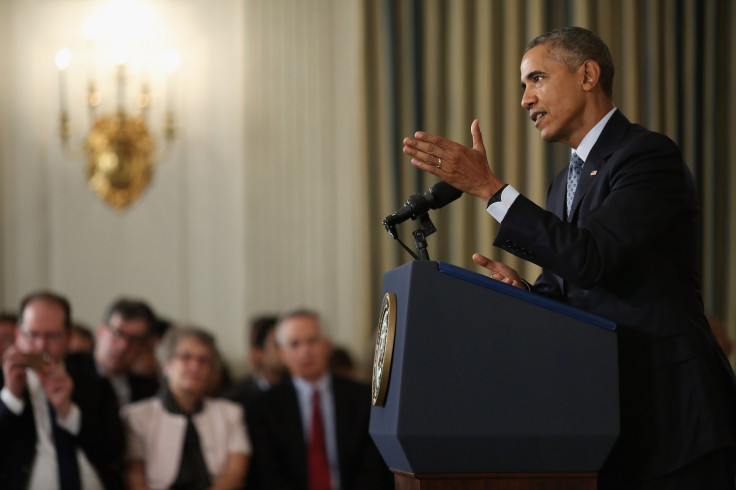Parental Leave: DC Council Members Introduce 'Generous' Policy, Hope To Bridge Wage Disparities

Washington, D.C. may have just schooled the rest of the U.S. on paid family leave. According to The Washington Post, the district introduced new legislation Tuesday that entitles almost every part-time and full-time employee in the nation’s capital to 16 weeks of paid leave, so they can bond with an infant or an adopted child.
This new legislation also entitles other employees who need time to recover from illness, recuperate from a military deployment, or tend to an ill family member. The Post reported that the Obama administration has “enthusiastically supported” this new worker benefit, adding that it’s the most generous in all 50 states. In fact, the legislation is on par with European countries, like the UK, where The Post cited parents can take as much as a year of paid time off following the birth of a child.
“The Obama administration has realized the action is on the state and local level, and they gave us the money to model how this could actually work,” D.C. Council member Elissa Silverman (I-At Large) told The Post. “We now have a national platform and a great opportunity with this legislation to show how it can be done.”
U.S. Labor Secretary Thomas Perez added that the U.S. remains one of the “few countries on Earth without national paid leave.” But there has been what he calls “remarkable progress,” in which more state and local officials are designing paid-leave policies.
Just look at Netflix: In August, the company announced that it will begin offering its employees unlimited paid maternity and paternity leave for the first year after a child’s birth. During this year, if new moms and dads want to work, they have the option to switch from a full-time to part-time schedule, or vice-verse — it’s whatever works for them, Netflix’s chief talent officer Tawni Cranz had said in a statement.
Back in June, when Richard Branson announced that Virgin Management’s UK employees now had the option of year-long parental leave, he said, “If you take care of your employees, they will take care of your business.” And science is on his side: Several studies have shown that family leave leads to a better economy and social support, which some experts consider the “cornerstone of progress.” Mothers in particular experienced reduced levels of stress, sleep deprivation, and postpartum depression.
But fathers also benefit from the time off.
Yet, not everyone agrees these policies are valuable. The D.C. Chamber of Commerce on Monday pushed back against the proposal, The Post said, saying that this type of legislation “would be unprecedented and make the District of Columbia dangerously uncompetitive.”
In response to these objections, council member David Grosso (I-At Large) argued that this worker benefit actually creates loyalty to D.C., especially when you compare the lack of statewide paid family leave in Maryland and Virginia. Grosso added that this bill is also “a partial solution to growing wage disparities.”
There have reportedly only been three states to introduce family leave programs over the past 10 years, with New Jersey and California offering the highest amount of time at six weeks of partial paid leave. The present legislation would be required to pay into the fund depending on company size, The Post reported, which means employers with high-paid employees would “pay the equivalent of 1 percent of each employee’s salary, or about $1,500 per year per worker.” Companies with minimum wage workers would about 0.6 percent, or $131 per year per worker.
Gross believes this program would be a step toward rewarding strong families “the way we should.”
Published by Medicaldaily.com



























